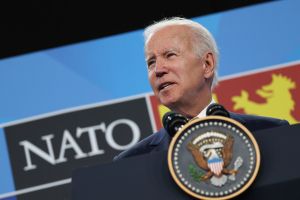And bipartisan majorities of Americans support admitting new members to the alliance, Council polling shows.
Key Findings
- Eighty-one percent of Americans say the United States should maintain (62%) or increase (19%) its commitment to NATO, the highest level of support recorded since Chicago Council Surveys began in 1974.
- Support for maintaining or increasing the US commitment to NATO is bipartisan, with large majorities of Democrats (90%), Independents (78%), and Republicans (75%) in support.
- Bipartisan majorities support the admission of Finland, Sweden, Ukraine, and Georgia as new NATO members.
Americans Back the US Commitment to NATO
More Americans now than at any time in the 48-year history of the Chicago Council Survey say the United States should maintain or increase its commitment to NATO. A combined total of eight in 10 (81%) favor maintaining or increasing the US commitment to the alliance, including 19 percent who want to increase the US commitment and 62 percent who want to maintain it as it is. Few say the US should decrease its commitment (11%) or withdraw from NATO altogether (5%).
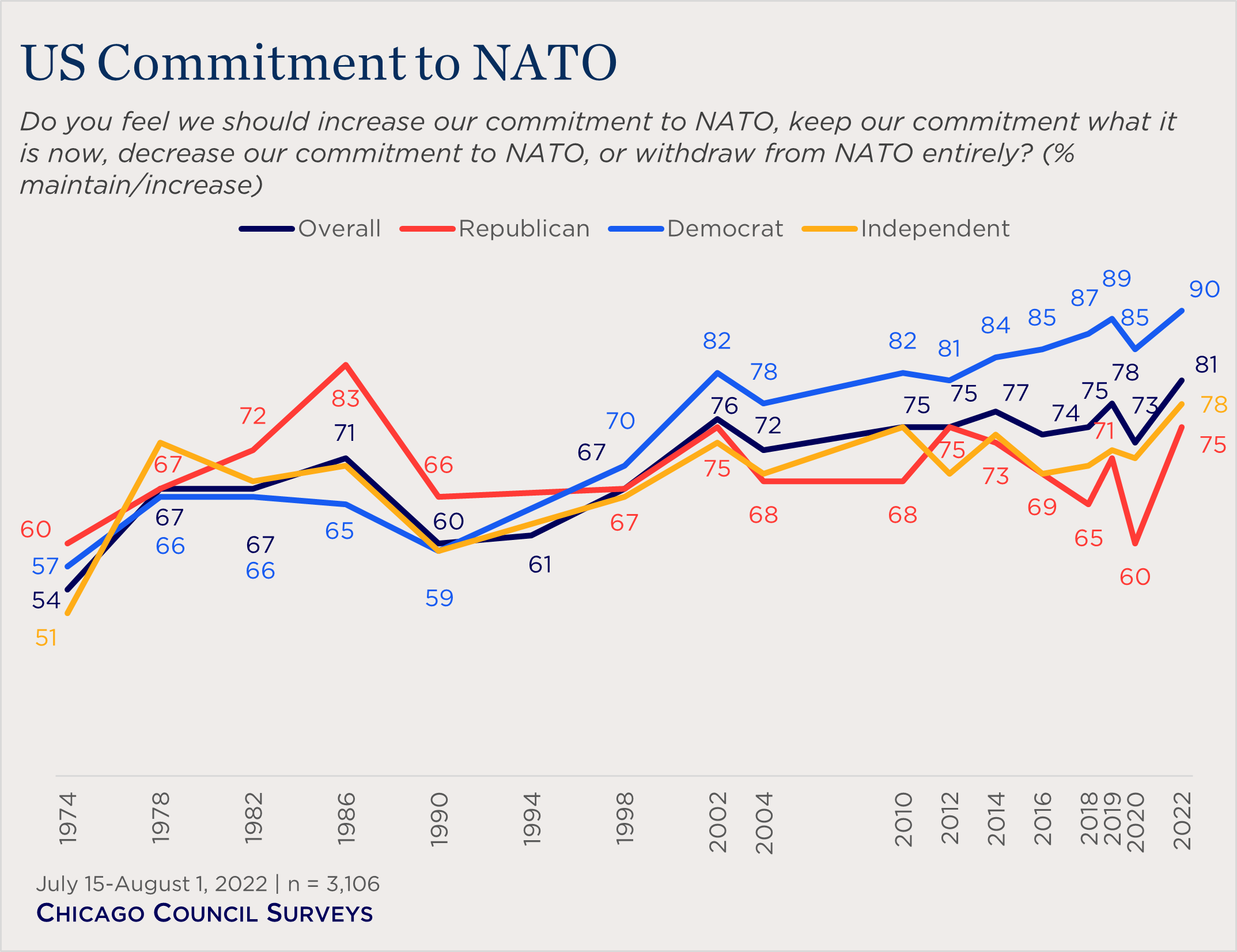
That support is bipartisan. Since 1998, Democrats have been more likely to favor maintaining or increasing the US commitment to NATO. That remains true today, with nine in 10 Democrats (90%) saying the United States should maintain (60%) or increase (30%) its commitment. But they are not alone in that preference. Three in four (75%) Republicans say the United States should maintain (66%) or increase (6%) its commitment to NATO, up sharply from 2020 when 60 percent said the same. Nearly eight in 10 Independents (78%) similarly support maintaining (61%) or increasing (17%) that commitment.
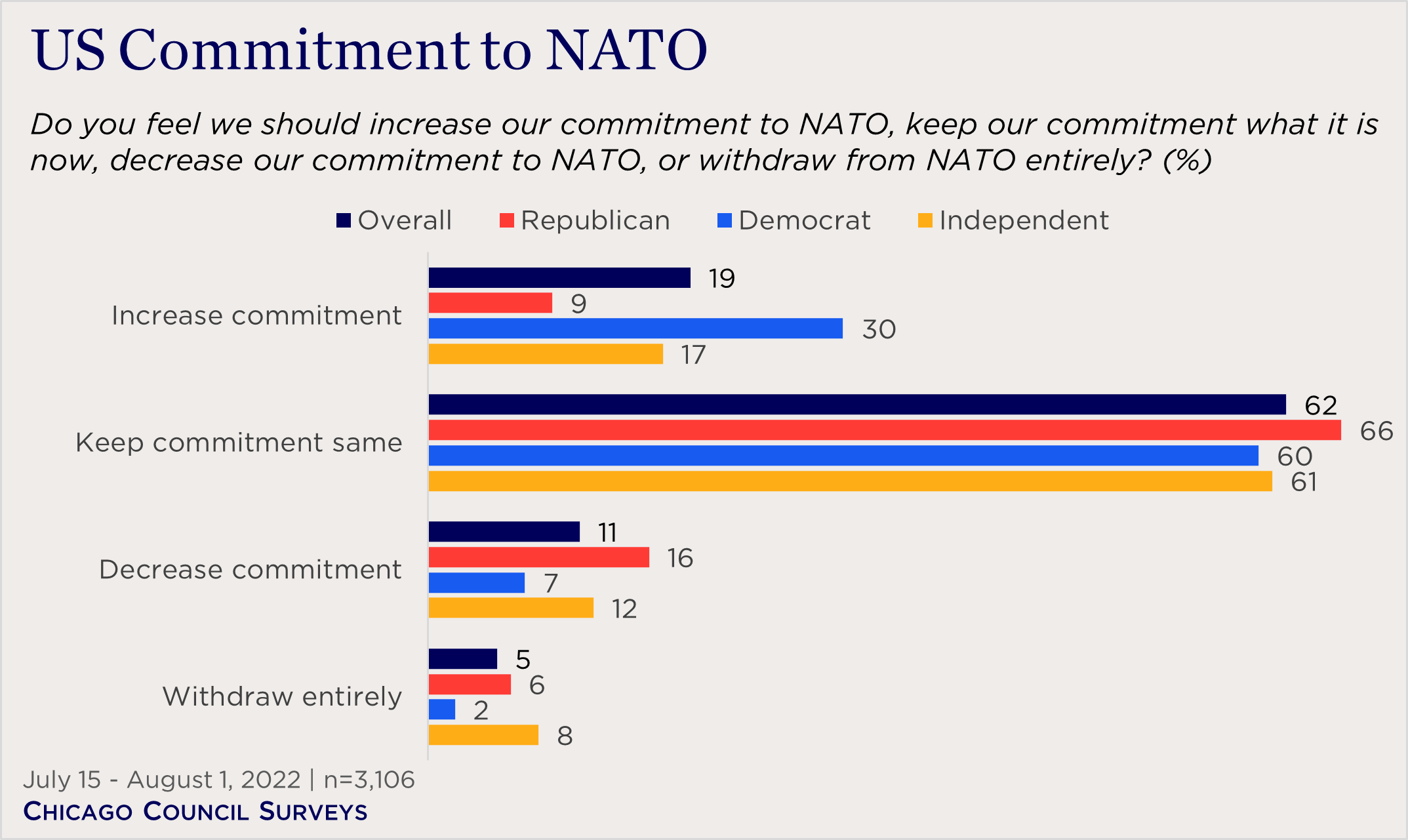
Strong Public Confidence in NATO Leaders
Two-thirds of Americans (64%) have a great deal (16%) or a fair amount of confidence (48%) in the ability of NATO leaders to shape policies that benefit the United States. While majorities across party lines say they are confident in NATO’s leaders, Democrats have notably more confidence (77%, vs. 59% of Independents and 54% of Republicans).
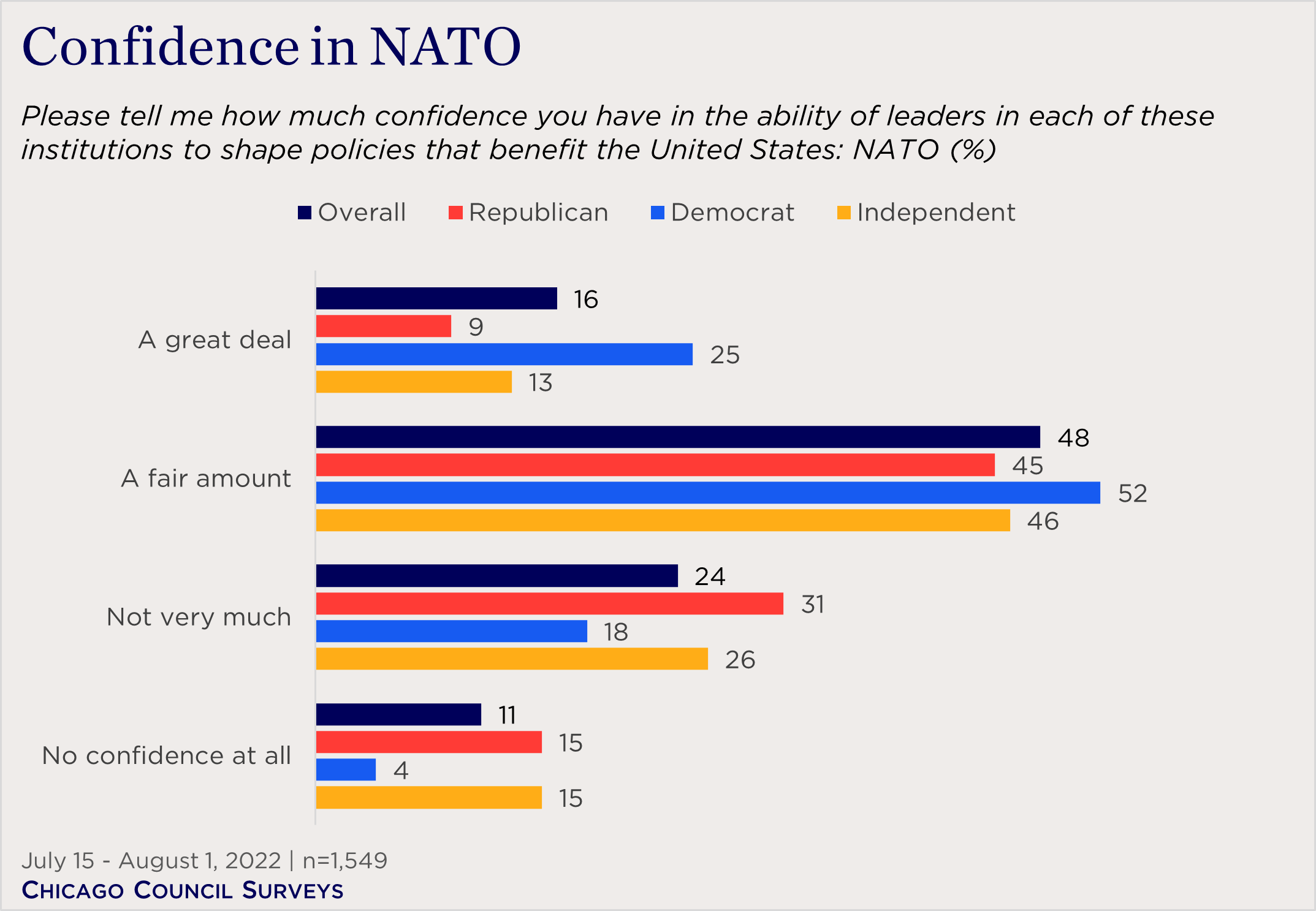
Bipartisan Support for New NATO Members
Majorities of Americans across party lines support admitting new members into NATO even if that means NATO members might have to defend them against future Russian aggression. This includes Finland and Sweden (76% support for each), whose accession into NATO was supported by the US Congress in August 2022. Three in four Americans (73%) also support admitting Ukraine as a NATO member, and two-thirds say the same about Georgia (67%). Across these cases, Democrats are somewhat more likely to support the expansion of NATO, though sizeable majorities of Republicans and Independents support the admission of all countries in question.
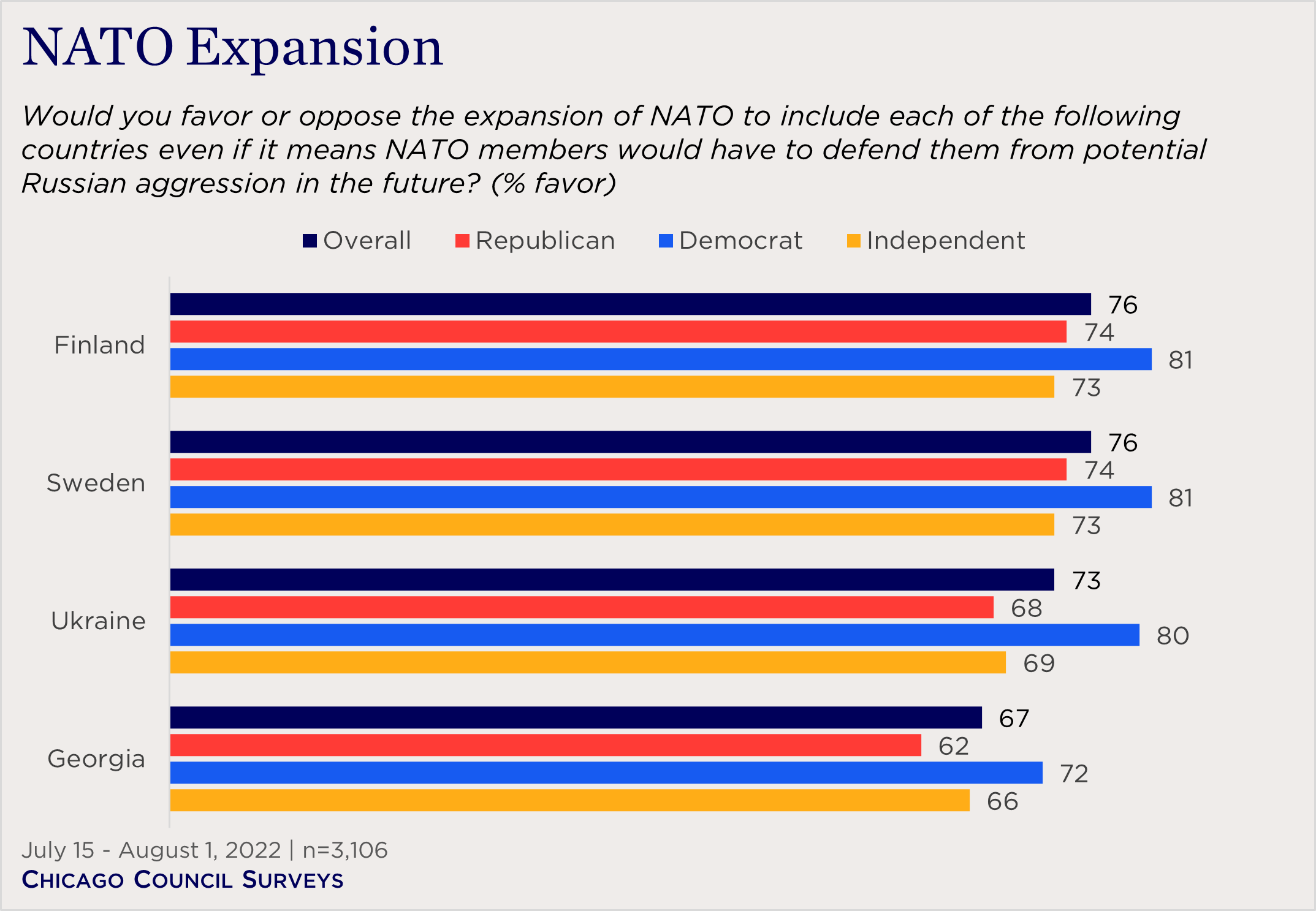


Methodology
This analysis is based on data from the 2022 Chicago Council Survey of the American public on foreign policy, a project of the Lester Crown Center on US Foreign Policy. The 2022 Chicago Council Survey was conducted July 15–August 1, 2022, by Ipsos using its large-scale nationwide online research panel, KnowledgePanel, in both English and Spanish among a weighted national sample of 3,106 adults 18 or older living in all 50 US states and the District of Columbia. The margin of sampling error for the full sample is +/- 1.8 percentage points. The margin of error is higher for partisan subgroups or for partial-sample items.
Partisan identification is based on how respondents answered a standard partisan self-identification question: “Generally speaking, do you think of yourself as a Republican, a Democrat, an Independent, or what?”
The 2022 Chicago Council Survey is made possible by the generous support of the Crown family and the Korea Foundation.

Related Content
 Global Politics
Global Politics
Council President Ivo Daalder joins the Aspen Security Forum to discuss the new NATO amid the world's changing geopolitical order.
 Global Politics
Global Politics
Ivo Daalder discusses NATO's evolution, the Russian "wake-up call" that placed it back in the news, and the future–and feasibility–of trans-atlantic defense.
 Defense and Security
Defense and Security
Defense cooperation requires a shared understanding of threats and goals. And, to be effective requires action, making tradeoffs, and paying costs—not just statements.
